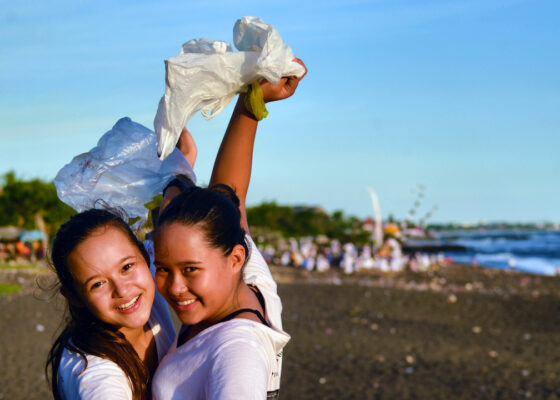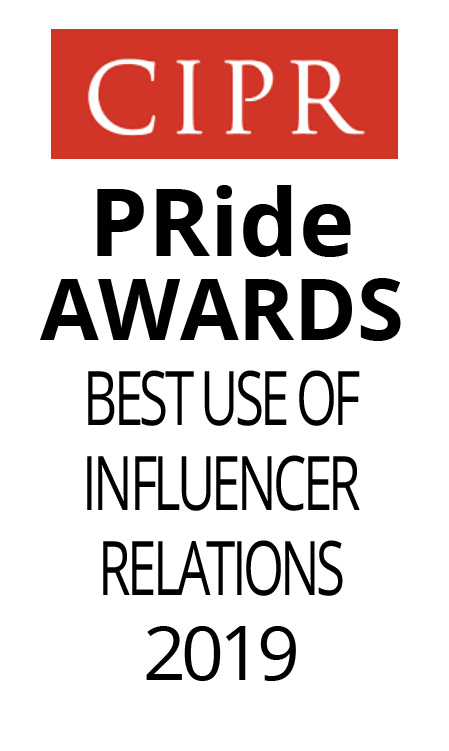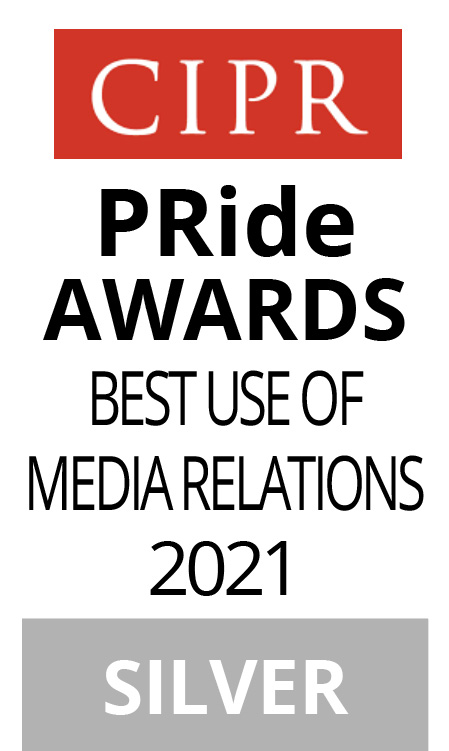This week is my first week back after honeymoon (small brag) spending three weeks in the classic honeymooners’ destination of Bali, Indonesia. It was everything you’d expect – good food, temples, rice fields and romantic beaches strewn with litter.
Aw, yes – that last one, it wasn’t exactly what I’d planned. Don’t get me wrong, I’m not saying absolutely every beach we saw in Bali was strewn with litter – the ones outside our hotels and beach clubs were crystal clear with an army of staff litter picking as necessary.
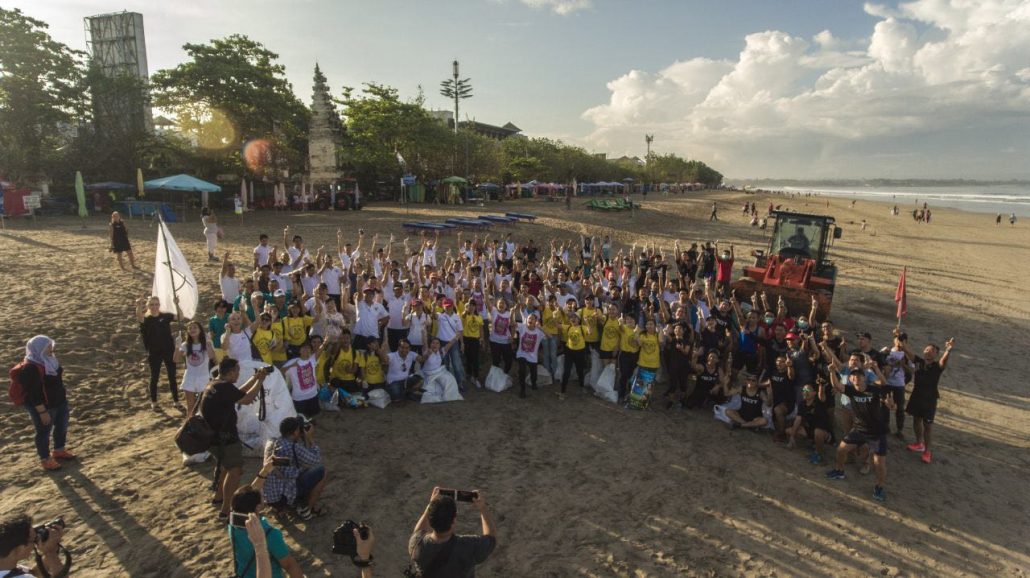
The public beaches, on the other hand, had more wrappers, cigarette butts, cans and bags than golden sand. And I don’t believe it was all washed up marine litter, a lot was just human laziness.
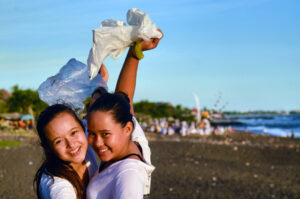
The answer to littering – changing human behaviour. These two feisty girls (left) who set up Bali’s ‘One Island One Voice’ and it’s sister organisation ‘Bye Bye Plastic Bags’, certainly believe so, with their island-wide campaign to stop littering and on-mass beach clean ups. Last year they collected 65 tonnes of waste as part of the 2018 beach litter pick.
But as we know only too well in PR, changing human behaviour and attitudes isn’t an easy task. Recycling champions have been repeating the important messages about disposing of our waste effectively in different forms, across different channels, since I was old enough to hold a felt tip and draw my first poster about the dangers of littering.
Raising awareness
Part of the solution to changing human behaviour and subsequently our increasing recycling rates is raising public consciousness – Blue Planet was enormously successful in pushing litter and marine pollution to the top of the agenda (and received a special ‘Impact Award’ at the National Television Awards in recognition).
As a result of the ‘Blue Planet effect’, we’ve seen a number of changes take place in just six months since it aired; a proposed ‘plastic-free’ mark for packaging; Iceland’s plastic-free aisle; and Michel Gove announcing a government consultation to ban single-use plastic straws and cotton buds.
Clear instruction
The second equally important part of solving the litter problem is cutting through public confusion about recycling with clear instructions. Something which organisations like the Metal Packaging Manufacturers Association are right on top of.
It’s latest ‘Recycling Superheroes’ campaign has a clear message – all metal is 100 per cent recyclable and with a special designation as a permanently available material, it can be recycled indefinitely without any of its properties ever changing.
So, make sure you put your cans in your recycling bin or you’ll have Recyclonic after you! There are other organisations all championing the same message: recycle – the possibilities are endless.
Public confusion over recycling
Yet there is still endemic confusion over what can and cannot be recycled and this is mostly down to the garbage about recycling that’s printed in the media. When our national press publishes information which is misleading, it makes it harder for us all to adopt the right recycling behaviours and threatens our recycling rates.
Imagine my horror, as a recycling nut, to see The Sun explain the rationale behind a new plastic-free aisle in supermarkets by printing a picture of six different products including crisps, a Mars bar, a jar of fruit, baked beans in a can, a disposable coffee cup and empty metal tins with a caption underneath which said, ‘Here are six items that can’t be recycled’.
As I’ve just said metal is one of the most widely recycled materials in the world. And I can tell you, through our work with client, Cawleys Waste Management, here are the actual recycling facts:
- Metal cans of any shape or size and glass of any colour can be recycled. Cardboard and paper can be recycled but keep it segregated, dry and clean. Coffee cup and coffee grounds can be recycled, again keep them segregated to maintain their integrity and value.
- The wrapper on a confectionary such as a Mars Bar is made from oriented polypropylene (OPP) and contrary to popular belief this material can be recycled. The substance has a reasonable value, making it economical to recycle and there are companies which specialise in recycling it. However, this is only viable in post-industrial environments. So, a large manufacturing plant could recycle its OPP, this does mean post-consumer wrappers aren’t recycled.
- Crisp packets are made from polyethelene terephthalate (PET) and technically this material can also be recycled in an industrial setting. Crisp packets from consumers are not recycled though.
And from that list of products under the caption ‘Here are six items that can’t be recycled’, because they are said to contain plastic, several are widely recycled:
- 80 per cent of all the world’s steel ever produced is still in use
- 75 per cent of steel cans are recycled in the UK
- 72 per cent of all drink cans in the UK are recycled
- 70 per cent of all paper in the UK is from recycled fibre
- 66 per cent of all glass in the UK is recycled
- 44 per cent of all plastic in the UK is recycled
Unfortunately, the picture and captions in the original newspaper article were wrong. The photo and caption were later changed online, but arguably the damage was done; the seed of doubt planted in people’s minds.
So, what’s the answer?
If we’re truly to reach a circular economy, where our resources are never lost, and waste materials recovered, we have to stop littering and aim for the highest possible recycling rate both in our households and across the business world.
This will only be achieved with clear straightforward instructions that humans, lazy creatures of habit, can easily adopt. As PRs and communication experts we can help play a vital role in getting these messages across – MPMA’s Superhero video has already received over 3,000 views.
So, I’ll leave it to Anna Cawley, Director of Customer Services at Cawleys Waste Management, to sum up four things you definitely should do with your recycling:
-
“Wash your recycling. As contaminated packaging cannot be recycled.
-
“Opt for foods packaged in clear plastic trays over black. Black trays contain ‘black carbon’ a pigment which cannot be recycled.
-
“Separate your food waste. Food waste can be processed by anaerobic digestion creating biofertilser and biogas and saving carbon emissions.
-
“Disposable coffee cups and used coffee grounds can be recycled. People struggle to recycle these because they lack access to the correct waste collection service. You can dispose of disposable coffee cups in some UK outlets –McDonalds has installed recycling units in 80 per cent of its UK stores. And ACE UK has 382 recycling points in 97 local authorities which will accept disposable cups. Find your nearest point online.“
And if you’ve got a message that needs cut through, give me a call or drop me an email – jessica@twelvepr.co.uk or 01608 495016.
